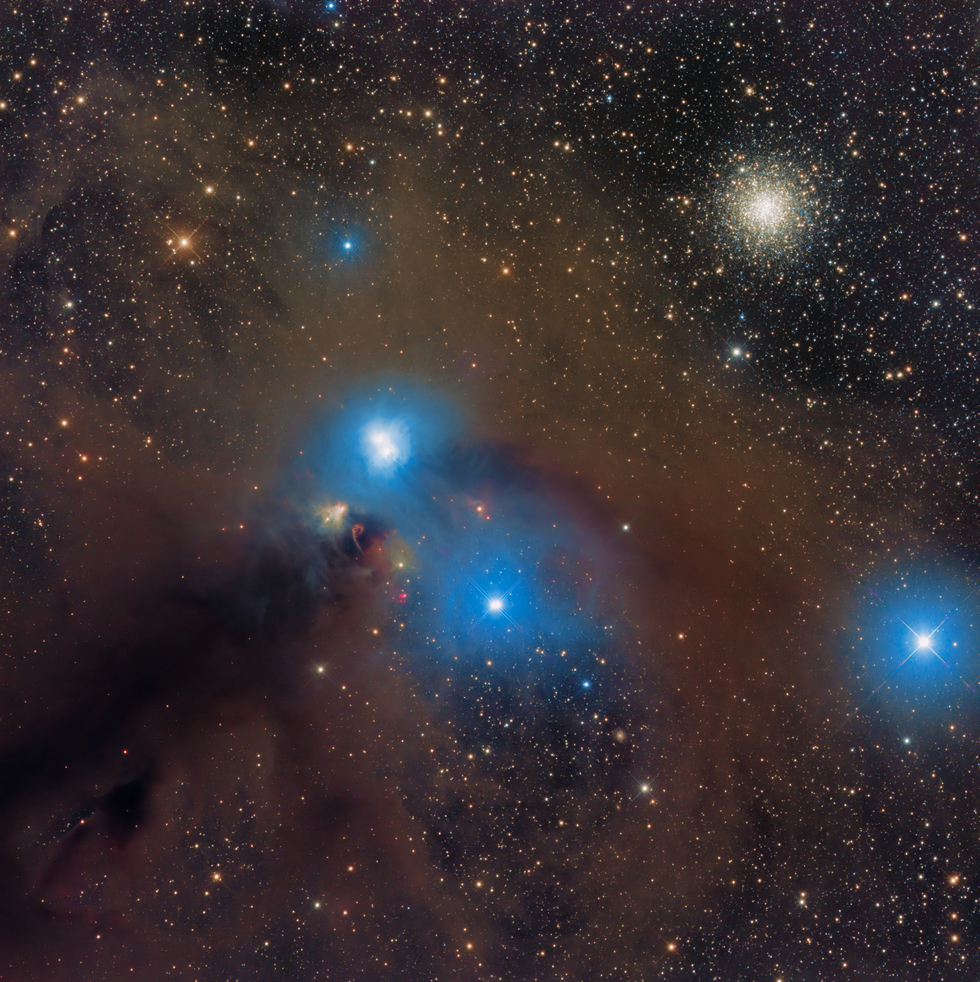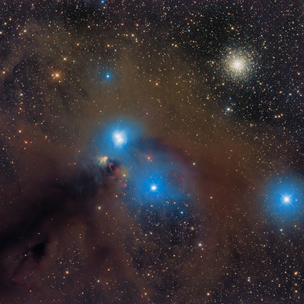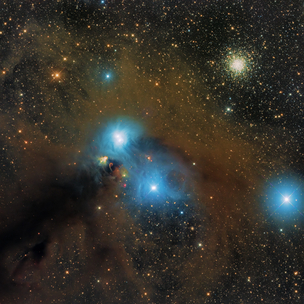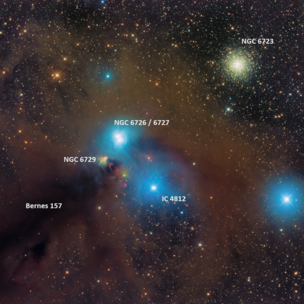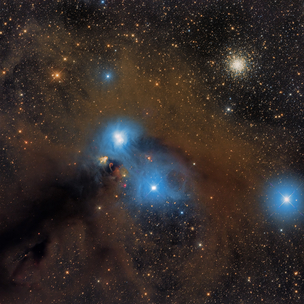Corona Australis Molecular Complex and NGC 6723
0
5
Corona Australis Molecular Complex and NGC 6723
Image of the Corona Australis Molecular Complex, together with globular cluster NGC 6723, captured with CHI-2 (ASA500N)
The Corona Australis Molecular Complex is a dark molecular cloud with many embedded reflection nebulae, dark nebulae, a variable nebula, Herbig–Haro objects and very young blue stars near the northern boundary of Corona Australis, the Southern Crown. About 430 light years away, it is one of the closest star-forming regions to the Solar System.
Globular star cluster NGC 6723 is above and right of the nebulae. Though NGC 6723 appears to be part of the group, its ancient stars actually lie nearly 30,000 light-years away, far beyond the young stars of the Corona Australis dust clouds.
Total integration time 120 minutes.
3 subframes of 600s with each filter (LRGB)
The Corona Australis Molecular Complex is a dark molecular cloud with many embedded reflection nebulae, dark nebulae, a variable nebula, Herbig–Haro objects and very young blue stars near the northern boundary of Corona Australis, the Southern Crown. About 430 light years away, it is one of the closest star-forming regions to the Solar System.
Globular star cluster NGC 6723 is above and right of the nebulae. Though NGC 6723 appears to be part of the group, its ancient stars actually lie nearly 30,000 light-years away, far beyond the young stars of the Corona Australis dust clouds.
Total integration time 120 minutes.
3 subframes of 600s with each filter (LRGB)
SPECIFICATIONS
Telescope
CHI-2 (ASA500N, 50cm)
Camera
FLI PL16803
Location
El Sauce Observatory, Chile
Date of observation
14/06/2021
Filters
LRGB
Processing
AstroPixelProcessor, Photoshop CC (incl. AstroPanel 4.2, Astronomy Tools, Topaz Sharpen AI & Denoise Projects 3 plug-ins)
Credits
Astrophotography Group "Volkssterrenwacht A Pien", Ghent (Belgium)
